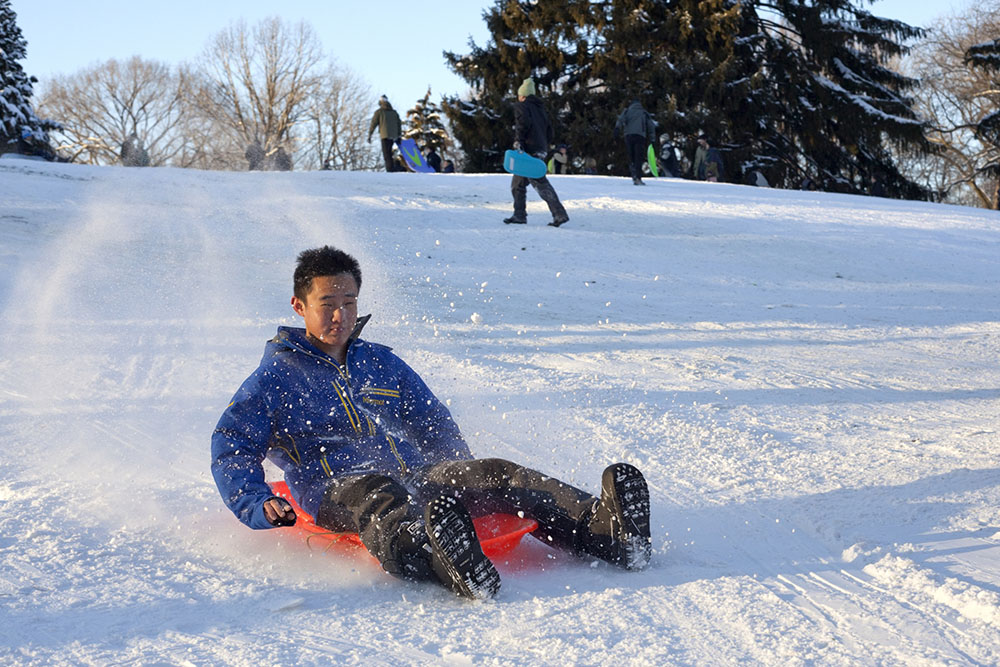Staying Safe On (And Off) The Road This Holiday Season

Plenty of us will be making a trek to see family and friends this holiday season, and doing so by driving. Here’s some safety reminders to keep in mind as you hit the road this holiday season.
•Avoid drowsy driving. In some cases, our relatives and loved ones live several hundred miles away. While it might be tempting to drive straight to your destination without stopping, that might not be wise--especially if you feel yourself starting to get tired.
“People will try to fight through fatigue and it puts everyone at risk,” said Ronald Knipling, author of “Safety for the Long Haul” a comprehensive textbook embraced by the trucking industry. “Self-awareness is the real issue.”
One way to fight fatigue is to give yourself a break every now and then. Stretch your legs. Pull over and get some light cardio exercise in to get the blood pumping. Supplement the exercise with a caffeinated drink and you should feel alert shortly.
But there’s no substitute for shut-eye. If you’re truly exhausted, nothing will fix it but rest. A 20- to 30-minute power nap in a safe place can recharge you for the next leg of your journey.
•Beware of aggressive drivers. There’s always at least one every time you take a trip: Someone blaring across lanes and flirting with triple digits on the speedometer. The safest thing to do is simply get out of their way.
Aggressive driving occurs for a number of reasons, including people running late, traffic congestion and a feeling of anonymity by the aggressive driver.
Congestion on the roadway is one of the most frequently mentioned contributing factors of aggressive driving. Drivers may be prone to aggressive driving tactics like excessive lane-switching or growing angry at those they feel are slowing their progress.
Drivers who are late for an appointment are often tempted to speed, hoping to “make up” for lost time.
Also, a vehicle protects (and insulates) a driver from the world. This protection from the environment can see a driver develop a sense of detachment, as if they are merely an observer of their surroundings--rather than a direct participant. A belief that they cannot be seen by others, or that they will never see the people they share the road with again, causes some people to feel less constrained by their behavior.
•Don’t pass semi trucks on the right. Long-haul trucks have notoriously large blind spots, especially on their right side.
Truckers typically stick to the slow lane, though they may merge into a faster one when passing by another, slower truck.
Allow them time to pass, and the semi will typically reenter the slow lane, allowing you to safely pass them on the right.
Do not tailgate a semi, as the driver cannot see what’s behind them.
A simple rule to remember: If you can’t see the semi’s mirrors, then the truck driver can’t see you.
•Don’t leave presents or other valuables in plain sight within the vehicle.
“It literally takes seconds to smash your window, take your belongings and flee," said Stephanie Slater, spokeswoman for the Boynton Beach Police Department.
Store items in the trunk of your car and unload the vehicle when you get back home.
Also, secure items that could possess street value. Sure, you know that prescription pill bottle in the cupholder treats indigestion, but someone passing by might smash-and-grab thinking it’s filled with narcotics or opiates.
•Bring snacks and distractions for the kids. Drivers and passengers are bound to get hungry during a road trip and stopping at a drive-thru can cost precious time and money.
Consider packing an insulated cooler with granola bars, fruit, beverages and other healthful, filling fare.
Grapes, nuts, and pre-sliced cheese are among some items to consider bringing along with you, as they are easy to grab and can be eaten by the driver without taking their eyes off the road.
To help pass the time, have your family put together several road trip playlists. And set up mobile devices with fun road games that support multiple players. The digital versions of Scrabble, chess, checkers and monopoly are among the game’s passengers can play together.
•Make use of rest stops along your journey. Many smartphone applications offer motorists comprehensive details about the rest stops available to them along their trek.
Rather than referring to a dusty map stored in the glove compartment, navigators can watch the route unfold in real-time. Such apps can range in price from free to a few dollars and are available on all platforms.
Look for an app that sets a filter for your direction of travel and eliminates stops that aren’t conveniently located or are on the opposite side of the freeway.